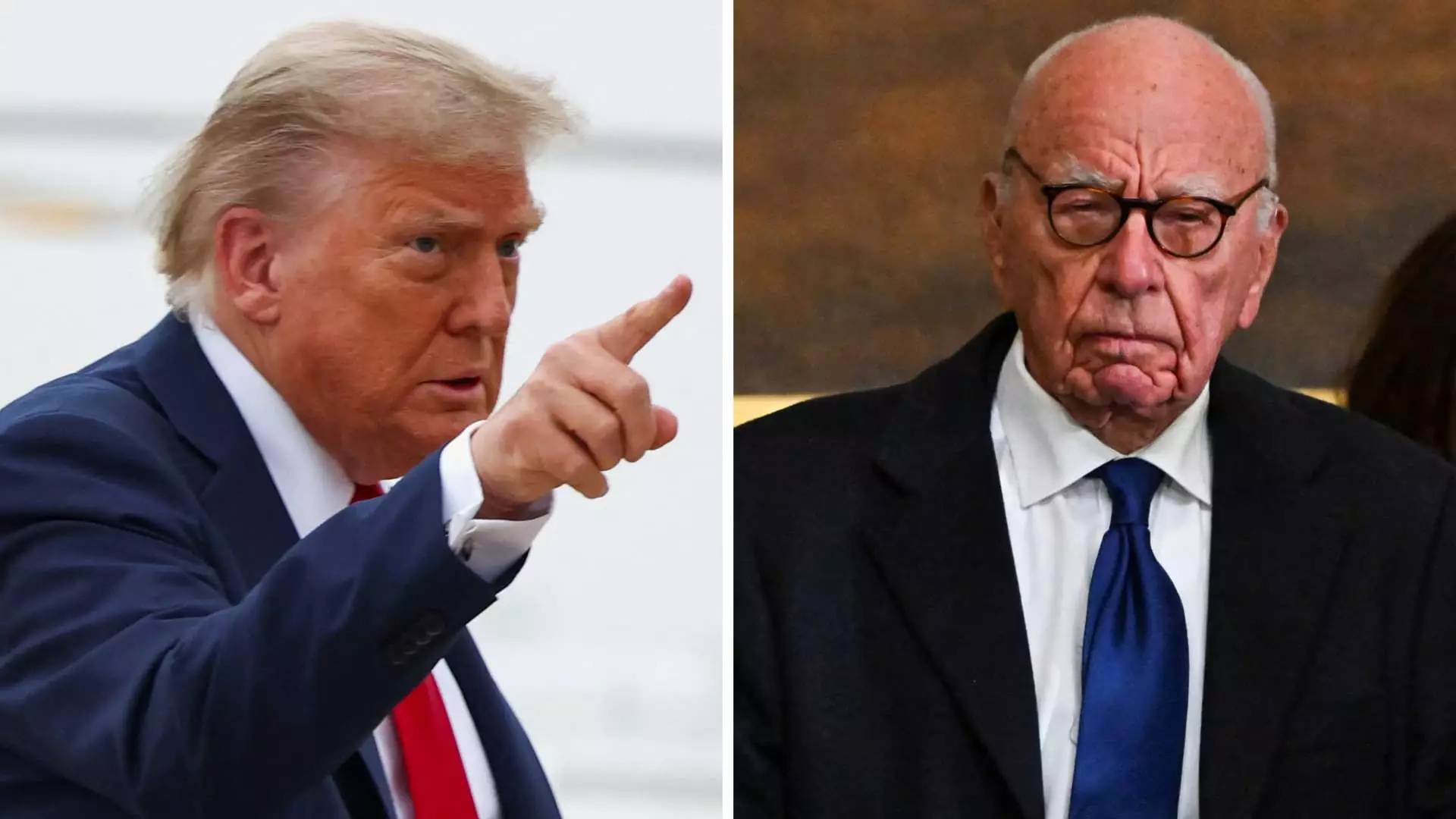In the intricate web of American political and corporate influence, few figures wield as much covert power as Rupert Murdoch. The recent maneuver to delay his deposition in Donald Trump’s defamation lawsuit reveals more than just a legal stratagem— it exposes the underlying dynamics of influence, loyalty, and opacity that characterize the intersection of media moguls and political figures. Murdoch’s agreement to provide health updates under clear duress indicates the strategic importance placed on controlling narratives, often at the expense of transparency and accountability. This pact, rooted in Murdoch’s advanced age and health issues, underscores a deeper willingness to leverage personal health against legal obligations—a troubling reflection on how power often manipulates vulnerability.
It’s impossible to ignore how this scenario exemplifies a broader pattern: the consolidation of influence through strategic silence and selective disclosure. Murdoch’s media empire, particularly Fox News, has long acted as a formidable political tool, shaping public opinion in favor of its allies and often circumventing accountability. This deal hints at an unsettling alliance where personal health becomes a bargaining chip, ensuring that critical information and testimony remain shielded from scrutiny for as long as possible. Such practices demean the principles of fairness and transparency essential to a functioning democracy, raising concern about the extent to which corporate interests and personal relationships override justice.
The Symbiotic Relationship Between Media Power and Political Loyalty
Historically, Murdoch’s media outlets have played a pivotal role in bolstering political figures aligned with his interests. Fox News has transitioned from a conservative news channel into a de facto cheerleader for Trump-era policies. The cozy relationships—where administration officials, political spouses, and media figures intertwine—highlight a blurring of lines between objectivity and political allegiance. Trump’s own consumption of Fox’s content, coupled with the fact that his daughter-in-law hosts a show, illustrates a symbiotic ecosystem designed to perpetuate specific narratives and maintain influence.
This relationship is not merely about media but about the strategic cultivation of loyalty and control. Murdoch’s willingness to adapt and prioritize political loyalty over journalistic integrity demonstrates a broader trend of media moguls shaping the political landscape to serve their interests. The recent legal delay, coupled with Murdoch’s health shield, exemplifies how influence is maintained through mechanisms that often sacrifice transparency. It raises critical questions about the integrity of media as a watchdog and whether it has devolved into a tool for partisan benefit rather than a purveyor of truth.
The Erosion of Accountability in the Age of Power and Privilege
The deferred deposition of Murdoch is emblematic of a troubling erosion of accountability for those who control powerful narratives. While ordinary citizens face rigorous scrutiny and legal consequences, entrenched elites leverage their influence, health, and resources to maintain their position of impunity. The fact that Murdoch’s health is being used as a shield underscores a disturbing reality: the powerful can manipulate even their mortality to deflect justice.
Moreover, the legal agreement’s subtle details—such as the mechanism for health updates and the prescribed timelines—reflect an insidious form of behind-the-scenes negotiations that most public observers are unaware of. These hidden negotiations serve to preserve influence and silence dissent, reinforcing a hierarchy where transparency is sacrificed at the altar of political and corporate advantage. Such practices threaten the very foundations of accountability that democracy relies on, fostering an environment where the powerful operate beyond the reach of the law.
This scenario also underscores a broader malaise: the mutual reinforcement between corporate media and political elites, creating echo chambers that distort reality and undermine democratic principles. When public trust is eroded by these secret arrangements, society suffers, enabling a small elite to dominate discourse and decision-making while the rest of the population remains in the dark. The Murdoch-Trump arrangement exemplifies this dangerous trend, revealing how influence often operates in shadows, leaving ordinary citizens to question the legitimacy of the institutions they rely on.
In essence, this legal delay is more than just a procedural hiccup; it is a window into a deeply ingrained system where power, influence, and secrecy reign supreme. The future of accountability depends on breaking these patterns—demanding transparency, exposing hidden deals, and insisting that truth and fairness are not sacrificed at the altar of influence—no matter how powerful the actors involved may be.


Leave a Reply